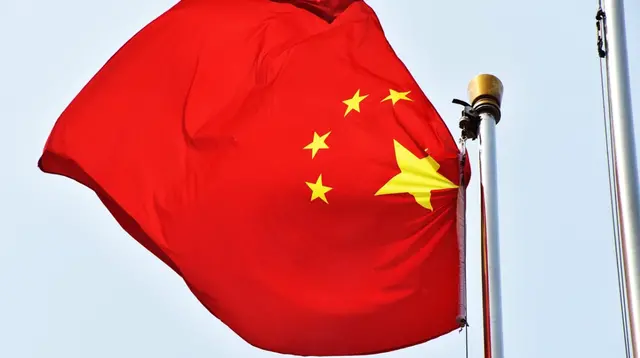About the author: Prof. Engr. Zamir Ahmed Awan is the Founding Chair of GSRRA (Global System for Regional Cooperation and Research Analysis), a Sinologist (ex-Diplomat), Editor, Analyst, and a Non-Resident Fellow of CCG (Center for China and Globalization). He can be reached via email at [email protected].
China has taken a significant stride towards solidifying its position as a responsible global power with the enactment of the Law on Foreign Relations. This momentous legislation, adopted during the third session of the Standing Committee of the 14th National People's Congress on June 28, 2023, underscores China's unwavering commitment to forging a shared future for all humanity. By establishing a solid foundation for China's engagement with the international community, this law upholds the values of sovereignty, mutual respect, and cooperation.
The Law on Foreign Relations, enacted in accordance with the Constitution of the People's Republic of China, aims to fulfill several vital objectives. Firstly, it seeks to safeguard China's sovereignty, national security, and development interests. Secondly, it endeavors to protect and promote the interests of the Chinese people and propel China towards becoming a great modernized socialist nation while realizing the rejuvenation of the Chinese nation. Additionally, this law aims to promote global peace and development and foster a community with a shared future for all mankind. Its scope encompasses a wide range of areas, including diplomatic relations with other countries, economic and cultural exchanges, cooperation with international organizations such as the United Nations, and more.
At the core of China's foreign policy lies a commitment to pursuing an independent foreign policy of peace, guided by the five principles of mutual respect for sovereignty and territorial integrity, mutual non-aggression, non-interference in internal affairs, equality, and mutual benefit, as well as peaceful coexistence. China remains dedicated to the path of peaceful development and steadfastly adheres to the fundamental policy of opening itself to the world and pursuing mutually beneficial openness.
China wholeheartedly embraces the purposes and principles enshrined in the United Nations Charter, striving to safeguard global peace and security, promote common development worldwide, and build a new form of international relations. The nation is firmly committed to resolving international disputes through peaceful means and vehemently opposes the use of force, threats, hegemony, and power politics in international relations. It upholds the principle of equality among all countries, regardless of size, strength, or level of development, while respecting the independently chosen development paths and social systems of all nations.
The Law on Foreign Relations serves as a specific legal framework that solidifies China's approach to global engagement. It manifests China's dedication to advancing high standards of openness, upholding the multilateral trading system, promoting international cooperation, and strengthening the rule of law in foreign affairs.
This law provides a systematic and comprehensive approach to China's foreign relations, ensuring consistency, transparency, and predictability in its interactions with other nations. It serves as a testament to China's commitment to global peace and development, particularly as its role in global affairs continues to expand. By sending a clear message to the international community, China affirms its commitment to an open, inclusive, and rules-based international order.
Central to China's global role is the vision of building a community with a shared future for all mankind. The Law on Foreign Relations reflects China's dedication to this vision, highlighting principles such as friendship, sincerity, mutual benefit, and inclusiveness in its international engagements. China firmly believes in the importance of cooperation, mutual respect, and peaceful resolutions in fostering global harmony. This law underscores China's commitment to promoting dialogue, pursuing common goals, and establishing equitable relationships with other nations.
Moreover, the law emphasizes China's commitment to fostering external economic cooperation and promoting the development of the Belt and Road Initiative (BRI). By creating opportunities for economic growth and connectivity, China contributes to the stability and development of regions across the globe. The BRI, with its emphasis on inclusive and sustainable development, promotes cooperation, cultural exchanges, and mutual understanding among participating nations, thereby fostering a harmonious global community.
In a world grappling with rising protectionism, China's unwavering commitment to upholding multilateral trade assumes paramount importance. The Law on Foreign Relations underscores China's staunch opposition to unilateralism and protectionism while advocating for an open global economy. By championing a fair and just international economic order, China advocates for a level playing field for all nations. Its commitment to trade liberalization, market access, and dialogue-based resolution of trade disputes demonstrates its dedication to global stability.
The law also underscores China's commitment to providing aid and assistance to developing countries, focusing on economic, technical, and human resource support. The aim is to assist recipient countries in achieving their development goals. China's non-interference policy ensures that aid is provided on the basis of mutual benefit, fostering an environment of cooperation.
Recognizing the significance of the rule of law in both domestic and foreign affairs, the Law on Foreign Relations emphasizes the need to strengthen the rule of law in foreign-related legislative work. By ensuring compliance with fundamental norms governing international relations, China actively promotes a rules-based international order.
By upholding principles of mutual respect and cooperation, China promotes a vision of global peace where nations work together to address common challenges. The enforcement of this law reaffirms China's commitment to mutual understanding and shared benefits for all mankind.
(ASIA PACIFIC DAILY)
 简体中文
简体中文

